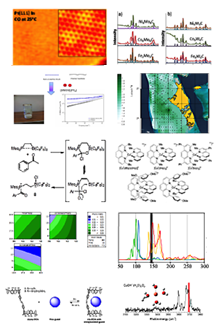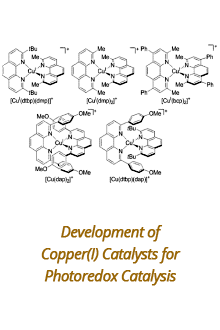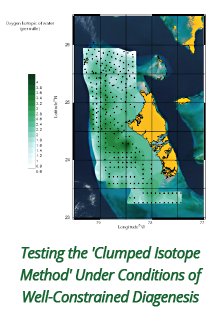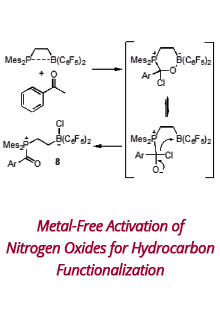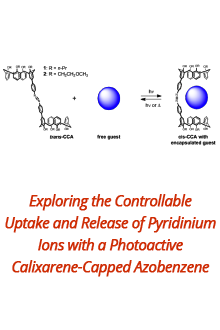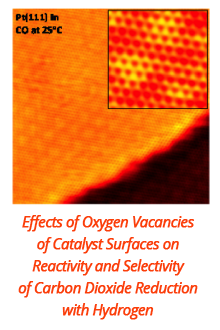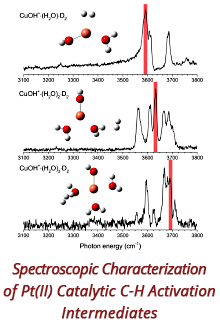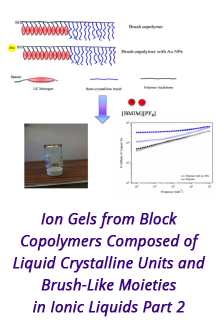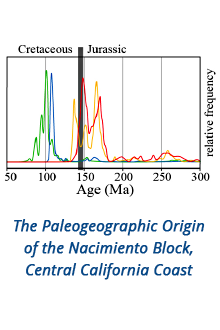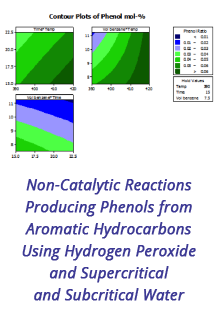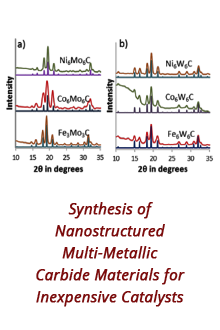Reports: DNI253418-DNI2: Evaluating Li Isotope Preservation in Carbonates and Implications for Use of Li as a Carbon Cycle Paleoproxy
A. Joshua West, PhD, University of Southern California
The current report focuses on activities during the first year of the two-year award period. The major achievements from this work during this time have been:
-- Developing the methodology for Li isotope analysis using the isotope clean labs at USC and the mass spectrometry facilities at Caltech. The equipment and procedure for routine analysis of δ7Li in carbonate samples are now in place and will enable the large number of sample analyses that are planned for the second year in order to meet the project objectives. The Neptune MC-ICP-MS at Caltech has been rigorously tested for Li isotope analyses, and this instrument is now operating (in terms of analytical precision and sensitivity) to a standard that satisfies the needs of this research project.
-- Assembling the sample set for completing the tests of different carbonates. Postdoctoral Fellow Mathieu Dellinger has assembled a range different mollusc, echinoderm, and coral samples that we will use for testing vital and diagenetic effects. These are now undergoing preparation for the analytical work, which we expect to continue through the next several months.
-- Testing initial carbonate δ7Li measurements from the Triassic carbonates. Using a set of readily available carbonate samples from the upper Triassic and lower Jurassic of Nevada, PhD student Kirstin Washington has generated a preliminary seawater δ7Li record for this Mesozoic interval. Values through this period of time are all within ~3‰. The consistency of this record gives us confidence in our analytical approach and sets the groundwork for our activities in the second year aimed at reconstructing seawater composition through time.
-- Completing a modeling analysis of the Cenozoic seawater δ7Li record. The Cenozoic δ7Li shows significant increase in seawater composition since ~55 Ma, but the interpretation of these changes has remained unclear. The Principle Investigator worked with collaborator Goajun Li to develop a model for exploring the likely changes in the global Li cycle that could best explain the record. This work was published in Earth and Planetary Science Letters. A particular focus of attention in this model was on the sinks that remove Li from seawater and their potential role to explain changes in isotopic composition. Although changes in the sinks may have a significant effect on seawater composition, likely magnitudes of change are not sufficient to explain the observed seawater record. Instead, the modeling exercise suggests that changes in continental input of Li are most likely required to explain the record. However careful analysis suggests that it remains difficult to conclusively link changes in continental Li delivery to the oceans to the controls on the weathering processes that drive long-term carbon fluxes and climate.
The work on this project in the first year has been possible through the efforts of the PI, PhD student Washington, and postdoc Dellinger. The recruitment of both Washington and Dellinger to USC depended on this PRF award. In the second year of this award, Washington plans to shift the emphasis of her research in other directions, while Dellinger plans to focus attention on finishing the research program that was outlined in this proposal. Both have benefited from the grant, in terms of the educational and professional opportunities that it has enabled. These opportunities have included training in isotope geochemical techniques as well as mentoring in the preparation of proposals (Dellinger submitted a proposal to further develop isotope geochemistry work at USC). More widely, in terms of the PI's research program, the award has been invaluable in allowing the development and initial application of a new isotope system in the USC geochemistry labs. With this up and running, the potential applications over the next year and beyond are exciting.

